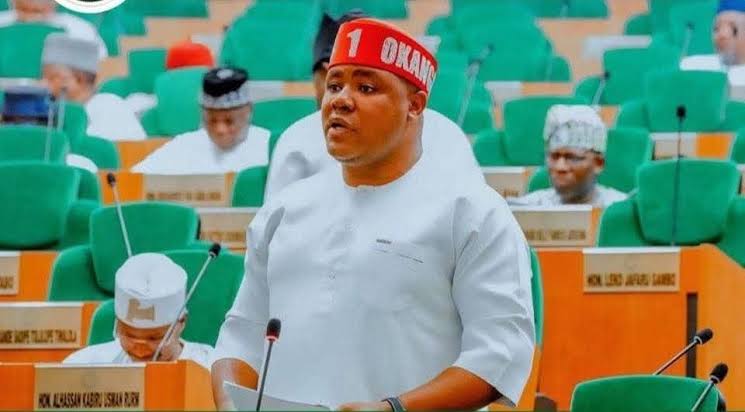20 members of the Ninth National Assembly out of 469 have been named among Semi-Finalists for the country’s first-ever Most Valuable Parliamentarian (MVP) Hall of Fame OrderPaper Nigeria and its partners have announced.
In a statement released over the weekend in Abuja by the organisation’s Executive Director, Oke Epia, said the shortlist comprises a female Senator, two Principal Officers, two Presiding Officers and ten first-term lawmakers across party lines from both the Senate and House of Representatives.
The MVP Hall of Fame initiative, which is in furtherance of OrderPaper’s contributions to legislative strengthening and promotion of improved service delivery in the National Assembly, aims at identifying and sustaining a distinct class of legislators who are performance-driven, excellence-inspired, and public-spirited.
According to the statement, having undertaken an independent, thorough and unprecedented data-driven annual performance appraisals of the 469-member ninth National Assembly since its first anniversary in 2020, the organisation says it deemed it appropriate and timely to commence instituting the Most Valuable Parliamentarian (MVP) Hall of Fame.
The annual appraisals focused exclusively on the core legislative function of law-making, and consideration for the MVP nomination and subsequent shortlisting essentially applied the criteria of Value, Impact, and Productivity in rating the contributions of those shortlisted.
While value speaks to the correlation of a bill’s advancement of the governance objective of the federal government; impact relates to the empirical contribution of a bill to the enhancement of the lives and living conditions of citizens; and productivity applies to the stage of progression of a bill to measure the diligence, dedication and hard work put into its processing by its sponsor.
Recall that following the midterm appraisals, 55 members of the National Assembly were nominated for possible induction and consequently conferred with certificates of recognition at a prestigious Evening of Sparkles held at the Transcorp Hilton Hotel in Abuja in July 2022.

“Only 20 of these nominees have now made the semi-final shortlist and would be subjected to a rigorous points-based scoring system to arrive as the eventual inductees into the Hall of Fame.
“The semi-final shortlist was determined at the completion of the third-year appraisal, and the eventual inductees would emerge following further assessments in the last year of the four-year tenure.
“This last and final assessment to determine the Most Valuable Parliamentarians of the Ninth National Assembly would be assisted in terms of oversight by an MVP Panel of Experts (MPEs) drawn from parliamentary think tanks, the academia, media, civil society, and the private sector.
The MVPs Induction is to send forth the 9th Assembly Class and welcome those re-elected back to Parliament will hold as a high-profile exclusive event at a date to be announced in due course.
The Most Valuable Parliamentarian (MVP) Hall of Fame is an invitation-only arena reserved for a distinct class of legislators who have proven to be performance-driven, excellence-inspired, and public-spirited.
It is designed to applaud and encourage exemplary leadership by leaders guided by a community of practice in productive partnerships between the Legislature, Civil Society and the citizenry in Nigeria.
OrderPaper reiterates that while it acknowledges that bills processing is not the only function of legislators, it is undoubtedly the most important; and measurement of performance on that score is based strictly on the sanctity of incontrovertible data, unlike performance measured against representation and oversight, which are the other statutory functions of legislators.
“Performance appraisals based on bills processing is therefore the most veritable, viable and verifiable in measuring performance at this late renascent stage of Nigeria’s parliamentary practice,” said Epia, adding that “this is why not even one of the 469-member federal parliament has been able to make any valid contestation of our performance appraisals published in the last three years.
“Civil society and citizens generally expect the National Assembly to be more open, transparent and accountable so that performance of oversight and representation functions, including the controversial constituency projects scheme, can be subjected to objective appraisals as advised by data. “We throw this as a challenge to the incoming 10th assembly, and one basic and necessary step to take in this regard, among others, is making records of attendance in plenary sessions, committee meetings and oversight visits public.”
OrderPaper Nigeria is the country’s premier and pre-eminent policy think-tank and legislative interface bridging the gap between citizens and parliament since 2015.



